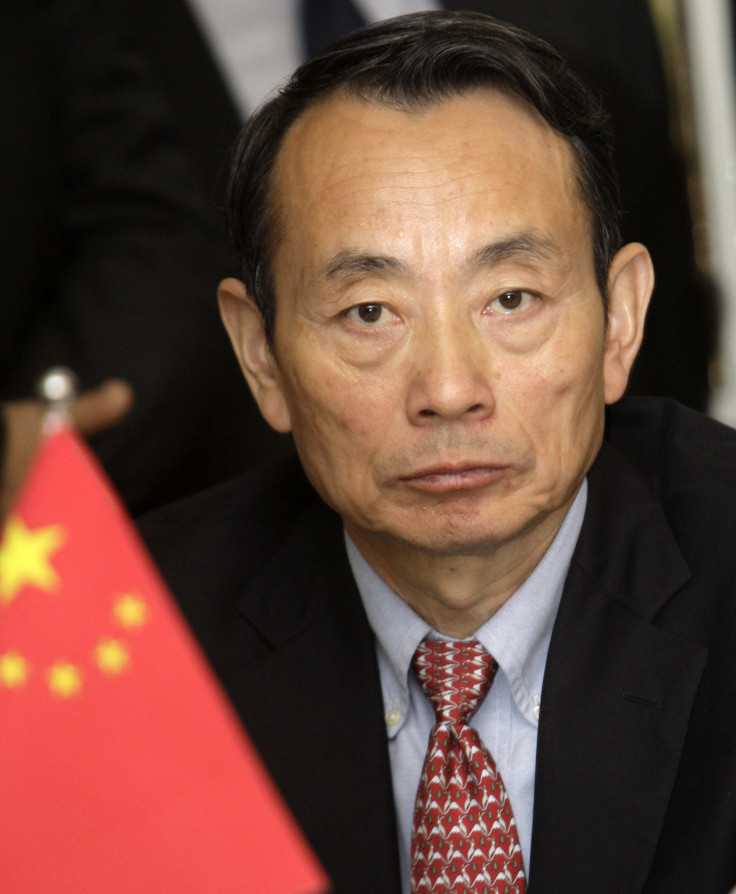Jiang Jiemin, Head Of State-Owned Assets And Former Chairman Of CNPC, Removed On Alleged Corruption Charges

Another high-ranking Chinese official has fallen: Jiang Jiemin, the head of the State-Owned Assets Supervision and Administration Commission (SASAC) and the former chairman of the China National Petroleum Corporation (CNPC), was suddenly removed from office on Sunday due to “suspected serious disciplinary violations.” Some have speculated that China’s house cleaning isn’t finished just yet, and President Xi Jinping could have an even bigger target in mind.
Jiang, 58, is the ninth high-ranking official to face such charges since President Xi and the current Chinese administration took over nine months ago. The decision to investigate Jiang came from Chen Xi, deputy head of the Organization Department of the Communist Party of China (CPC) Central Committee, at a meeting on Sunday, according to Xinhua, China’s state news agency. The term “suspected serious disciplinary violations” refers to corruption charges.
Prior to his appointment to the SASAC in March, Jiang led the CNPC for eight years. When Jiang left his post at the CNPC, his tenure was investigated, as is the customary procedure for leaders of state-owned enterprises, and the results of the investigation prompted his removal and the firing and investigation of four CNPC executives, it was announced last week, and it eventually led to a broader investigation of China's oil and gas industry, according to insiders, Sina News reported.
President Xi has warned that corruption is a serious threat to the Communist Party and vowed to eradicate corrupt officials in China, according to the BBC. A number of high-profile arrests have been made in recent months, including Bo Xilai, a senior party official who was on trial for bribery, embezzlement and abuse of power in August. Earlier in the year, investigations were made into the state-owned phone company, China Mobile Ltd., and the company’s general manager was detained.
Jiang is the first member of the 204-member Central Committee of the Communist Party of China, the highest authority within the CPC, to be arrested, making him the highest ranking official to see the untimely end of his career under the new leadership. A government statement presented Jiang’s removal as proof of Xi’s resolve to carry out anti-corruption measures.
“The decision represents the fundamental requirements of the Party to be strict with its members and demonstrates the Party's steadfast determination to fight corruption,” the statement posted on the SASAC’s website said on Monday, Xinhua reported.
The allegations against Jiang, if true, would have shamed his father, who was a bureau chief in a prefecture level materials bureau. The elder Jiang refused to take the car allotted for him, and he rode a bike to work each day. After retirement, he asked to return to the countryside as a farmer, and he asked Jiang Jiemin to visit on foot, instead of driving into the village.
The central administration of China, in a meeting of the Politburo of the Communist Party of China on Aug. 27, reiterated its resolve to fight corruption among both high-ranking officials, or “tigers,” and among corrupt low-ranking officials, or “flies,” according to Hexun News. Jiang is undoubtedly the biggest “tiger” to fall since President Xi’s anti-corruption war began, but some speculate there could be an even bigger “tiger” behind Jiang.
“The central government’s current fight against ‘tigers’ has proceeded slowly and methodically,” wrote Yan Zhaowei, a prominent political commentator and blogger, on Sunday. “But once it focuses on a target, it has moved swiftly, as we saw with the fall of the four executives [of CNPC] and Jiang Jiemin. It should be revealed soon, then, just who is the final, biggest tiger.”
© Copyright IBTimes 2024. All rights reserved.





















